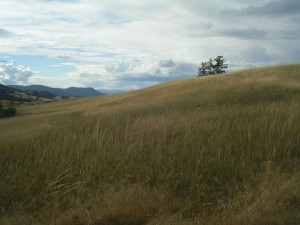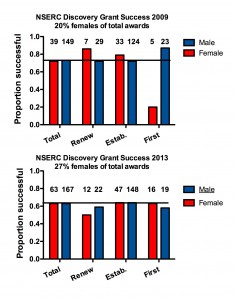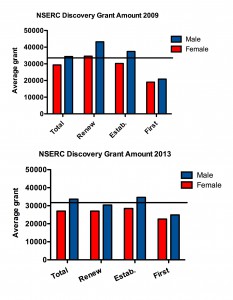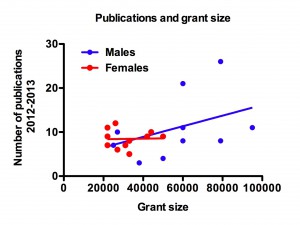Bill 24 – a threat to biodiversity and ecosystems associated with agriculture in BC
 Agriculture has often been viewed as a threat to natural environments. This is clearly the case when forests are cut down to create pastures for grazing animals or fields for high value crops. However, in a world already greatly manipulated by human activities, agricultural areas have increased in significance as refuges for organisms ranging from wildlife, birds, insects, plants, and soil microbes. In addition agricultural lands can preserve wetlands, riparian habitats, streams, wind breaks and patches of forest. These habitats and the organisms that dwell there benefit the agricultural industry and society in general by providing healthy, functioning ecosystems both on and adjacent to agriculture.
Agriculture has often been viewed as a threat to natural environments. This is clearly the case when forests are cut down to create pastures for grazing animals or fields for high value crops. However, in a world already greatly manipulated by human activities, agricultural areas have increased in significance as refuges for organisms ranging from wildlife, birds, insects, plants, and soil microbes. In addition agricultural lands can preserve wetlands, riparian habitats, streams, wind breaks and patches of forest. These habitats and the organisms that dwell there benefit the agricultural industry and society in general by providing healthy, functioning ecosystems both on and adjacent to agriculture.
In British Columbia Canada, agricultural lands have been protected to some degree since 1973 by the Agricultural Land Reserve administered by the Agricultural Land Commission. Approximately 47,000 sq. km have been preserved for agricultural use either now or in the future. It has been a continual battle over the years to prevent lands from being removed from the land reserve and large tracts have been used in land claim settlements with First Nations and for a variety of development projects. For the latter, the claim has been made that the land under contention is not sufficiently high quality for agriculture or the need for economic development is greater than the need for food security
A new threat to the ALR is currently before the BC Legislature, Bill 24. The proposed act will make it easier for many non-agricultural uses to be developed on agricultural lands. It will seriously change the operation of the Agricultural Land Commission, and will allow changes in the classification of Agricultural lands to occur without a transparent, public process based on sound, scientifically derived information. This bill is deeply flawed and threatens the sustainability and security of agricultural production. It puts the survival of many species and ecosystems at risk. It is particularly ill timed as the future of agriculture will be greatly changed as the climate continues to warm and northern areas become more suitable for crops.
A number of ecologists have voiced their concerns about the impact of this proposed bill in a letter to Primer Christy Clark. Their concerns are not only about the impacts on the sustainability of the agricultural industry, but also about the enormous threats to biodiversity, species at risk and the functioning ecosystems in British Columbia that would follow the reduction of the Agricultural Land Reserve. This letter is copied below.
From: The undersigned concerned scientist and naturalists
To: Premier Christy Clark
PO BOX 9041
STN PROV GOVT
VICTORIA, BC
V8W 9E1
Dear Premier Clark,
The British Columbia Government’s recently proposed changes to the Agriculture Land Commission (the Commission) Act greatly concerns many scientists for three reasons.
First, the revised changes to the governance and decision-making structure of the Commission reduces the ability for science to inform land use decisions. Second, the shift to divide the decision-making process regarding land classification into southern and interior zones will increase pressure to remove land from the reserve at a cost to the general good. And finally, the rationale for the division of the province into two jurisdictions, based simply on the value of the crops, overlooks the importance of other values associated with agricultural lands such as habitat for wildlife, endangered species, and contributions to ecosystem services.
Agricultural lands that occur in all regions of the province hold many values other than simply crop production. These areas contain wetlands, streams, ponds, riparian areas, woodlands, hedgerows, and uncultivated grasslands that are either adjacent to or integral to farm operations. These areas are instrumental in protecting functioning healthy ecosystems and in many cases, these diverse services help boost agricultural production. Many of the ecosystems encompassed by the Agricultural Land Reserve are rare in British Columbia and they provide habitat for a number of the Province’s most threatened or endangered species such as the burrowing owl, American badger, yellow-breasted chat, sage thrasher, Nooksack dace, and west slope cutthroat trout. Other more common species that occur on Agricultural Land Reserve land are integral to agricultural production. These species range from soil microbes that sequester carbon below pasturelands, to birds such as the western meadowlarks, swallows, and common nighthawks whose populations are already declining. Species prized for hunting such as deer and elk also use so called marginal agricultural lands. These species decline when agricultural lands are removed from production, marginal lands are converted to more intensive uses, or nonagricultural developments are permitted on agricultural lands. Allowing more nonagricultural uses on ALR land and the release of more lands from reserves will have the unintended consequence of threatening many important ecosystems and, by extension, many valuable species including species-at-risk.
Changing the current structure of the Commission to one that does not incorporate scientifically-derived information is deeply-flawed. Additionally, making changes to such an important piece of provincial legislation without consultation with the public, the agricultural industry, or scientists in general prevents relevant information and viewpoints to factor into informed decision-making. Allowing the agricultural industry to move forward with alternatives that incorporate science-based decision making within the current legislative framework are valid alternatives to altering the current reserve framework. These and other options should be explored because failing to incorporate alternate view points and scientifically derived information into the Commissions’ decision-making framework threatens the health of British Columbia’s ecosystems and endangers its biodiversity. The lack of a process to access and incorporate science-based information into the proposed framework threatens the biodiversity of British Columbia’s ecosystems and the sustainability and security of agricultural production in a changing climate.
We call upon the government of British Columbia to include scientifically derived information in the evaluation of the impacts of changes to Agricultural Land Reserve that may impact the health of British Columbia’s ecosystems and species at risk.
Sincerely,
The undersigned concerned scientists and naturalists
Authors
William Harrower RP Bio, PhD Candidate UBC
Judith Myers Professor Emeritus UBC
Sarah Otto, Fellow Royal Society of Canada, Director of Biodiversity Research Centre, Professor, UBC
Eric Taylor, Director Beaty Biodiversity Museum, Professor UBCElizabeth Kleynhans PhD Candidate UBC
Signatories
| Angert Amy, Canada Research Chair in Conservation Ecology, Assistant Professor, University of British Columbia |
| Arcese Peter, FRBC Chair in Applied Conservation Ecology, Professor, University of British Columbia |
| Baker Sandra, Senior Environmental Assessment Specialist, RP Bio, n/a |
| Baute Gregory J. , PhD Candidate, University of British Columbia |
| Bears Heather, Wildlife Ecologist, PhD, Zoetica Wildlife Research Services |
| Bestbier Regina, Research Assistant, University of British Columbia |
| Beyers Rene, Associate Researcher, University of British Columbia |
| Bomke Art, Professor Emeritus, University of British Columbia |
| Bradfield Gary, Associate Professor, University of British Columbia |
| Brotz Lucas, PhD Student, University of British Columbia |
| Bunnell Fred, Professor Emeritus, University of British Columbia |
| Burton Philip J., NW Regional Chair, Associate Professor, UNBC |
| Burton Carla, Phd, Symbios Research and Restoration |
| Byers Sheila, Registered Professional Biologist, Beaty Biodiversity Museum |
| Cannings Richard, Senior Programs Biologist, Bird Studies Canada |
| Carefoot Tomas, Professor Emeritus, University of British Columbia |
| Christensen Villy, Professor, University of British Columbia |
| Clark Trisha, Research Technician, University of British Columbia |
| Cockle Kristina, NSERC Post-doctoral Fellow, Louisiana State University |
| Cooke James, Lecturer, University of British Columbia |
| Couch Brett, Instructor, University of British Columbia |
| Cumming Preston, Post-Doctoral Fellow, University of British Columbia |
| Davis Helen, Senior Wildlife Biologist, Artemis Wildlife Consultants |
| Doebeli Michael, Fellow of American Association for the Advancement of Science, Professor, University of British Columbia |
| Durand Ryan, Senior Ecologist, RP Bio. , Durand Ecological Ltd. |
| Dykstra Pamela, Master of Resource Management, RP Bio, PR Dykstra & Associates Resource Management Ltd. |
| Enns Katherine, MSc RP Bio., Delphinium Holdings Inc. (formerly Larkspur Biological Consultants Ltd.) |
| Fenneman James D., PhD Candidate, University of British Columbia |
| Fraser Lauchlan, Professor, Thompson Rivers University |
| Frid Leonardo, Systems Ecologist, Apex Resource Management Solutions Ltd. |
| Gibeau Pascale, RP Bio. PhD Student, Simon Fraser University |
| Gillis Elizabeth, Professor, Vancouver Island University |
| Gosselin Louis, Associate Professor, Thompson Rivers University |
| Hackinen Alisha, MSc Student, University of British Columbia |
| Halsey T. Gordon |
| Harrison Bruce, Registered Professional Biologist, Independent Practicing Biologist |
| Hauert Christoph , Associate Professor, University of British Columbia |
| Hehenberger Elisabeth, Post-Doctoral Fellow, University of British Columbia |
| Henry Greg, Professor, University of British Columbia |
| Hill Ryan, Professional Biologist, Azimuth Consulting Group Partnership |
| Hodges Karen, Associate Professor, University of British Columbia |
| Hoffos A Robin, Naturalist, Citizen |
| Houde Isabelle, MSc. RP Bio, Association of Professional Biology |
| Irwin Darren, Associate Professor, University of British Columbia |
| Javney Mohr Carmelle, Junior Fellow, The Chester Ronning Centre for the Study of Religion & Public Life |
| Jose Mereno Geraldes Armando, Research Associate, University of British Columbia |
| Kaytor Benita, MSc student, UNBC |
| Kerry Mara, Director of Science and Policy, David Suzuki Foundation |
| Koot Cathy, Research Coordinator, RP Bio, University of British Columbia |
| Krzic Maja, Professor, University of British Columbia |
| Ladell Jason, Registered Professional Biologist, Independent Practicing Biologist |
| Larsen Karl, Professor, Thompson Rivers University |
| Latimer Susan, Registered Professional Biologist, Independent Practicing Biologist |
| Lawson Julia, MSc student, University of British Columbia |
| Le Renard Ludovic, PhD Candidate, University of British Columbia |
| Leathem Jamie, MSc student, University of British Columbia |
| Leduc-Robert Genevieve, MSc student, University of British Columbia |
| Leering Gerry, Registered Professional Biologist, past President, Association of Professional Biology |
| Lehmann Crysta, n/a, University of British Columbia |
| Leskiw Leonardo, Senior Soil Scientist, Paragon Soil and Environmental Consulting |
| Letaw Alathea, PhD Candidate, University of British Columbia |
| Lewis Alan, Professor Emeritus, University of British Columbia |
| Lin Sherry, University of British Columbia |
| Lion Christine, Environmental Scientist, Stantec |
| Lussier Jason, University of British Columbia |
| Machmer Marlene M., Registered Professional Biologist, Pandion Ecological Research Ltd. |
| Mahon Todd, Wildlife Ecologist, RP Bio, Wildfor Consultants Ltd |
| Martone Patrick T., Associate Professor, University of British Columbia |
| Matthewson Lisa, Professor Emeritus, University of British Columbia |
| McCune Jenny L, Liber Ero Postdoctoral Fellow, University of Guelph |
| McGrath Kate , student, University of British Columbia |
| Millen Sandra, Sr. Instructor Emerita, University of British Columbia |
| Mobach Annmarie, self-employed |
| Moore Jonathan, Liber Ero Chair of Coastal Science and Management, Assistant Professor, Simon Fraser University |
| Morien Evan, Bioinformatician, MSc, University of British Columbia |
| Mosquin Daniel, Research Manager, University of British Columbia |
| Moyers Brook, PhD Candidate, University of British Columbia |
| Neill William E., Professor Emeritus, University of British Columbia |
| Neville John, President, BC Nature (Federation of BC Naturalists) |
| Osmond Matthew, PhD Candidate, University of British Columbia |
| Pollock Carol, Director of 1st Year Biology, Professor of Teaching, University of British Columbia |
| Power Damian, Registered Professional Biologist, Wolfhound Wildlife Services |
| Rahme Ann, Biologist, Fisheries and Oceans Canada |
| Reid Anya, PhD Student, University of British Columbia |
| Rieseberg Loren, Professor, University of British Columbia |
| Rodgers Thea, student, University of British Columbia |
| Rogic Sanja, Research Associate, Center for High-Throughput Sequencing |
| Rudman Seth, PhD Candidate, University of British Columbia |
| Ruskey Jennifer, MSc student, University of British Columbia |
| Salomon Anne, Assistant Professor, Simon Fraser University |
| Samuels Lacey, Botany Department Head, Professor, University of British Columbia |
| Scholer Micah, PhD Candidate, University of British Columbia |
| Seghers Ben, Lecturer (retired), Oxford |
| Shartau Ryan, PhD Candidate, University of British Columbia |
| Siegle Matthew, PhD Candidate, University of British Columbia |
| Smith Jackie, Senior Manager, RP Bio. P Ag., SLR Consulting Ltd |
| Snyder Joan, PhD, RP Bio. , Retired |
| Soto Marybel, MSc Student, University of British Columbia |
| Stafl Natalie, MSc Student, University of British Columbia |
| Starzomski Brain, Assistant Professor, University of Victoria |
| Steele Fiona, Senior Biologist, Diamond Head Consulting Ltd. |
| Suarez Adriana, PhD Candidate, University of British Columbia |
| Sullivan Tomas, Professor, University of British Columbia |
| Thiel Bryanna, MSc student, University of British Columbia |
| Thorley Joseph, PhD, RP Bio. , Poisson Consulting |
| Tonya Ramey, PhD Candidate, University of British Columbia |
| Turkington Roy, Professor, University of British Columbia |
| Wang Jessie, student, University of British Columbia |
| Wellwood Debbie, Wildlife Ecologist, RPBio, Raven Ecological Services |
| Werring John, Senior Science and Policy Advisor, MSc. RP Bio., David Suzuki Foundation |
| William Ramey, Professor of Teaching, University of British Columbia |
| Williams Jennifer, Assistant Professor, University of British Columbia |
| Worcester Robyn, Conservation Programs Manager, Stanley Park Ecology Society |
| Xue Xinxin, PhD Candidate, University of British Columbia |
| Zevit Pamela , Registered Professional Biologist, Adamah Consultants |


